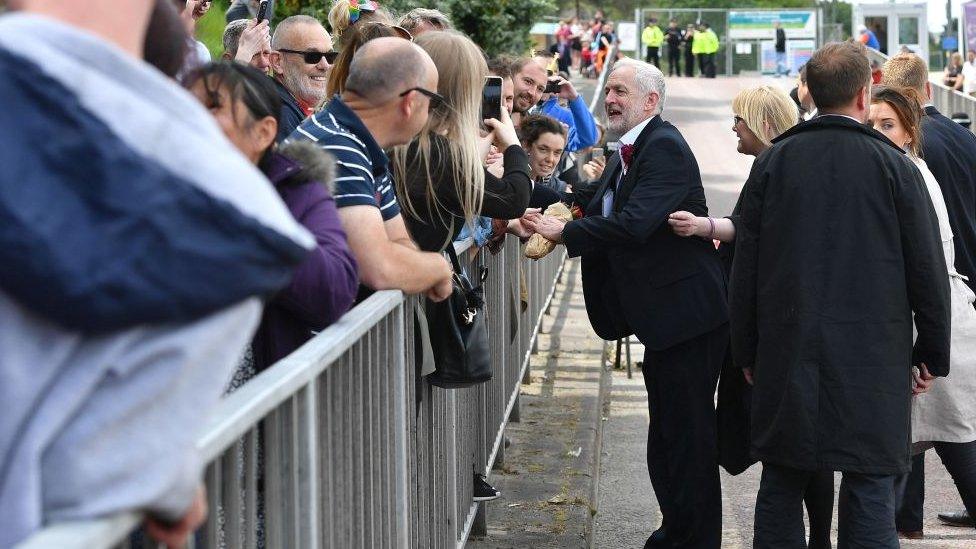State of the parties in Wales: UKIP
- Published
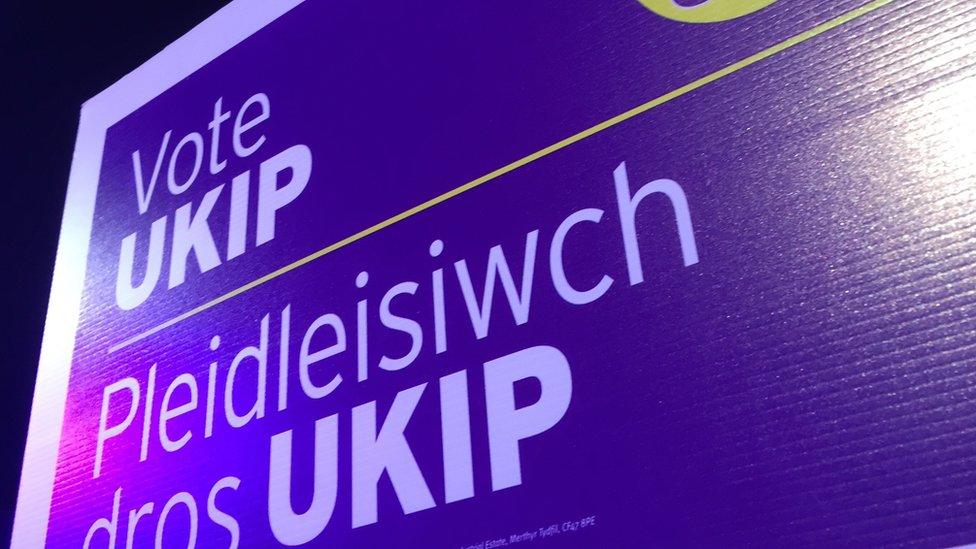
"My gut feeling is that we're going to get the Brexit that we fought for, and like your favourite old banger that you drove around and had wonderful picnics in and went to the seaside, it got you to where you wanted to go. But the day comes when you have to say goodbye to it and replace it, with a better model."
Nathan Gill is not talking about a car, but about his own party.
As the party embarks on its third leadership contest in a year, UKIP's MEP in Wales thinks that, unless the party can find a big issue to corral around like the Brexit negotiations, it could be curtains for its future.
Paul Nuttall, the party's last leader, resigned after a dire general election performance which saw the party win no seats and, in Wales, saw UKIP lose all of its deposits in the 32 seats it contested.
Its share of the vote plunged too, from 13.6% in the 2015 general election to just 2%.
It didn't always look like it was going to be this way.
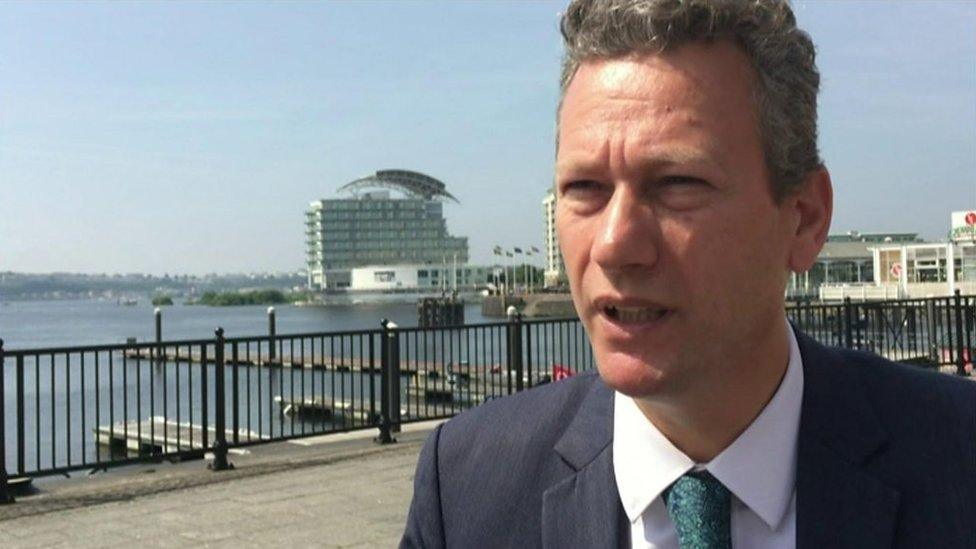
Nathan Gill suggests that a UKIP without a cause to rally around may be like an "old banger"
Back in May 2016 UKIP formed a group in the assembly with seven AMs sitting in the Senedd.
The assumption held by many was that their assembly presence would serve as a springboard for the party to continue to build its presence in Wales.
So far, that has not happened.
Since the Senedd election two of their most high-profile members - Mr Gill and Mark Reckless - have gone independent, dwindling their assembly numbers to five.
UKIP also failed to take off at the Welsh council elections a month before the general election result, failing to win any seats.
David Rowlands, the UKIP AM for South Wales East and a long-standing member of the party, argues that the poor performance in June was not down to UKIP but the fact that the poll was like a "presidential" election.
"The reason that it looks so bad for ourselves is that we've hit such heights over the last few general elections," he says.
But there had been internal disagreement over the party's general election campaign, which focused on banning the burka as a key policy.
The policy aroused controversy inside and outside the party. It was criticised by Nathan Gill after the election, saying he had distanced himself from the campaign and that Muslim women should not be told by politicians what to wear. The policy prompted UKIP's foreign affairs spokesman to resign.
The issue fed into the question around what UKIP's purpose is now, with its core policy - Brexit - being implemented by the UK government.
Mr Gill, who remains a UKIP MEP despite being an independent AM after falling out with Senedd group leader Neil Hamilton, says the reality was that there "was the one issue that united us, and that was leaving the EU".
"The only way really that UKIP can continue, I think, is if we have that big picture, that big goal of what we need to achieve," he says.
The MEP claims a "half-baked" Brexit could "reignite UKIP".
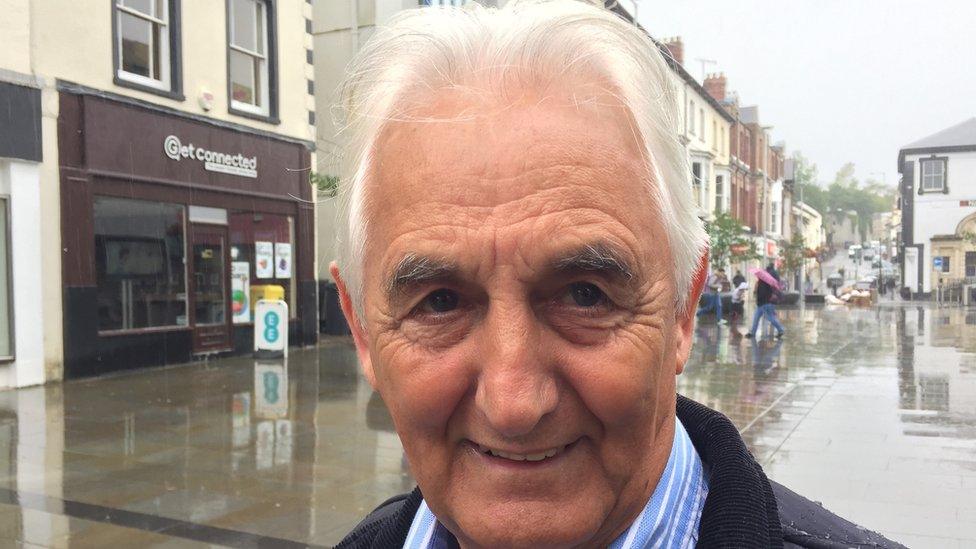
David Rowlands denied there was an existential threat to the party
The new model Mr Gill refers to in his old banger analogy "may be a political movement, it may be a new party".
It is important to remember that Mr Gill has had his own difficulties with UKIP in the last 12 months - having been threatened with expulsion by the ruling National Executive Committee over being both MEP and AM.
Meanwhile Mr Rowlands denies there is an existential threat to UKIP and says the party represents something others do not.
"What people don't understand is, if someone should leave the UK Independence Party at the moment, which party would they go to to reflect their views?
"I'm dyed in the wool UKIP, but could I go somewhere else and feel comfortable that they care about this country in the way I care about the United Kingdom?"
He admits that some members have thought the job was done after the referendum.
"There was a feeling out there, and it was among a number of members of UKIP, that we've done the job that we came into being to do, we've got ourselves Brexit... therefore what is now the raison d'etre of the party?"
Mr Rowlands, however, says "large numbers" of members who felt that way are returning to UKIP because they fear the Brexit negotiations do not reflect what the British people voted for.
Unlike Mr Gill, Mr Rowlands said he had been comfortable with the burka ban policy.
"I think the burka is an appalling garment... to me its a symbol of oppression of women", he says.
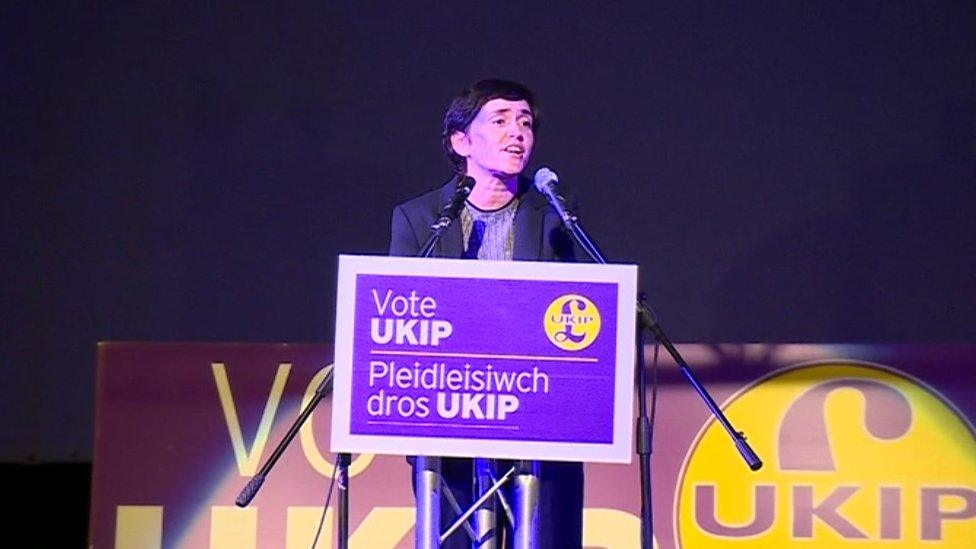
Anne Marie Waters is one of the 11 hoping to be candidates for leadership of the party
There are now 11 hopefuls who have registered an interest in taking over the party. They face a vetting process that is currently pegged to end this Friday, with voting due in September.
One of people thought to be a frontrunner is Anne Marie Waters - who has been vocal in her opposition to Islam.
There is talk of UKIP MEPs resigning if she won.
Mr Gill has been reluctant to say very much about the leadership campaign - he is not publicly backing a candidate.
The MEP is understood to be unhappy with the prospect of Ms Waters being allowed to run, although Mr Rowlands has himself said that she was unlikely to get through the vetting process.
He is backing David Kurten, a chemistry teacher and member of the London assembly.
Whoever takes the helm has the task of setting out a unifying purpose for the party that has struggled to find one since the EU referendum.
- Published4 August 2017
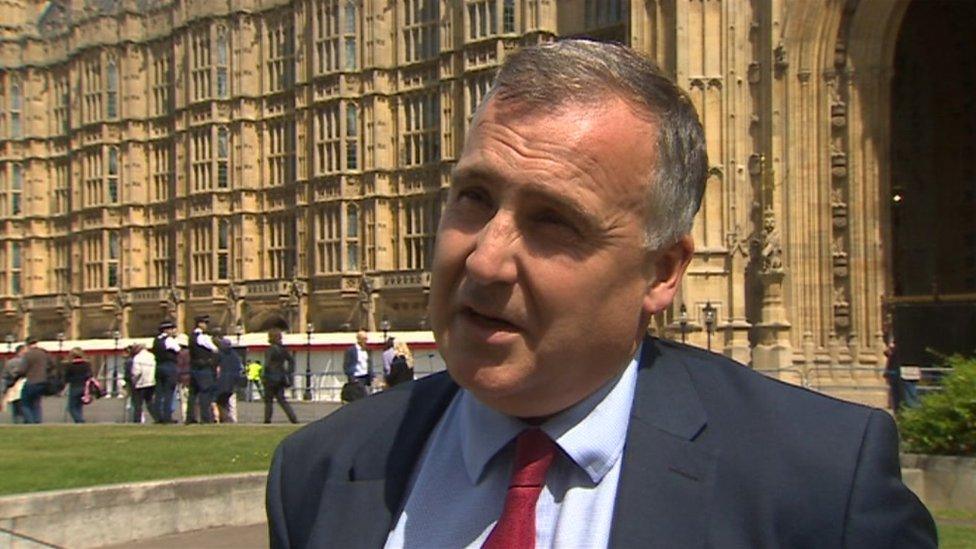
- Published3 August 2017
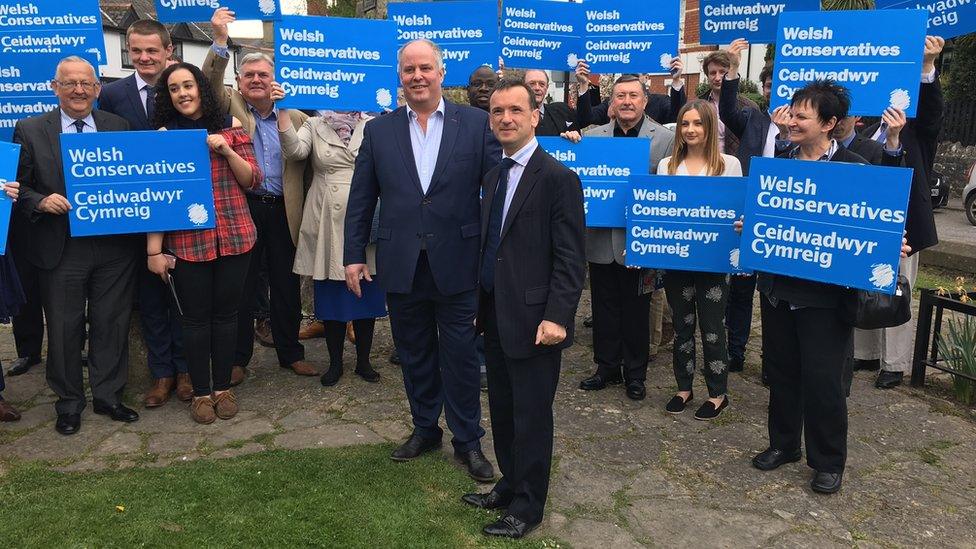
- Published2 August 2017
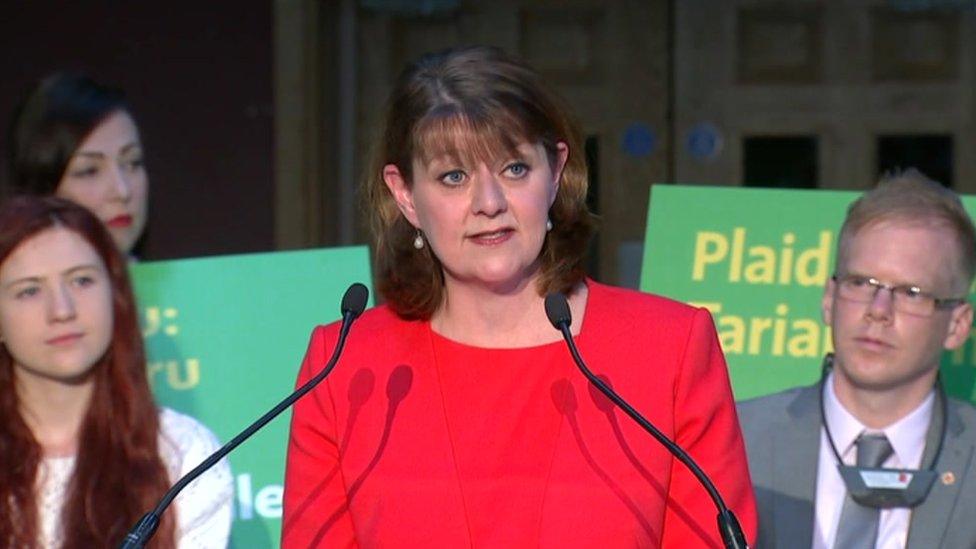
- Published1 August 2017
